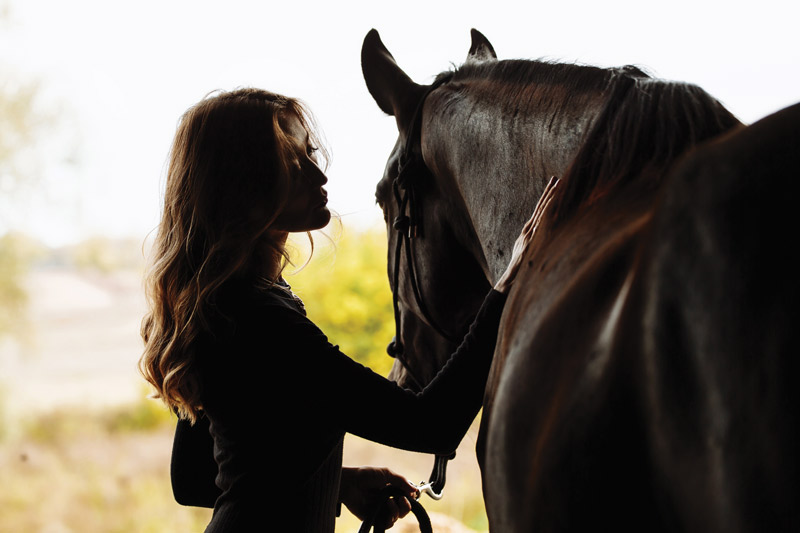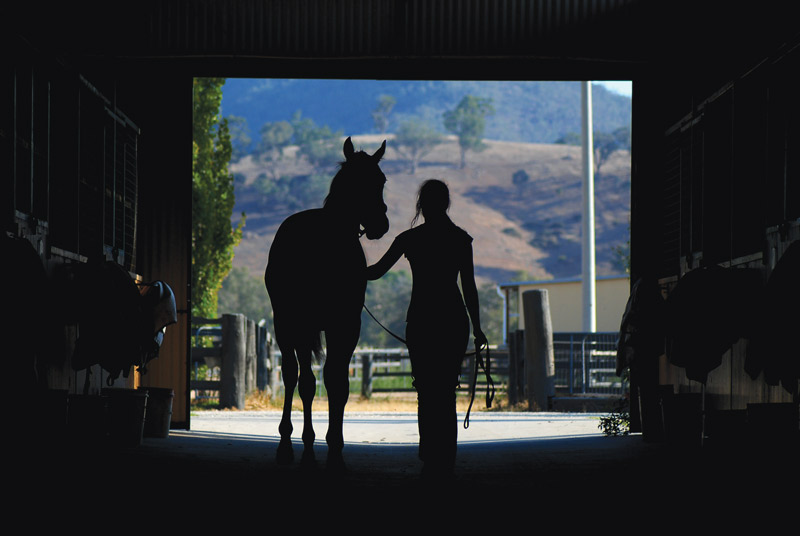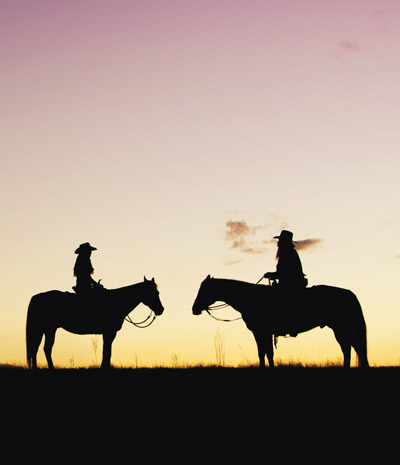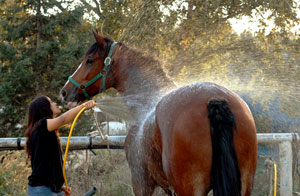From making the big decision to divorce to divvying up the property, everything about the process is complicated, emotional and stressful. As a result, the care and custody of the horse is just one of many things on the about-to-be divorced owner’s mind.
That’s exactly why some decisions should be made long before a breakup looms, such as determining the animal’s value (whether he is just a companion or a high-ticket performance horse), who will take possession of the horse, and who will pay the bills for his care.
“It’s critical to take an objective look at the horse, his value, ownership, and even state divorce law long before a divorce happens,” advises Peter A. Moustakis, managing member of Sowerby and Moustakis Law, PLLC, in Dedham, Mass.
Here are some things to consider.
How Much is the Horse Worth?
A horse that spends his life in the paddock, on the trail or on the local show circuit may be invaluable to his owner, but his value in the marketplace is probably completely different than one that has a high-profile racing or performance career. That’s why attaching a dollar value to the horse is key, Moustakis says.
“That means you have to have an appraisal,” he advises.
According to Moustakis, the courts generally consider horses to be personal property that will be distributed—based on dollar value—when the divorce settlement is made, or a case is consigned to court. An appraisal conducted by a certified, professional equine appraiser establishes an objective monetary value for the horse as property based on market research and analysis.
Judges generally uses these appraisals to provide “equitable distribution” or a 50/50 property split between parties.
“For example, that can mean if the horse is worth $10,000, one party gets the horse and the other gets $10,000,” says Moustakis.
If no agreement or fair division can be reached, the court might order that the horse be sold, says Emily Robinson, family law specialist in Westlake Village, Calif., and member of the Animal Legal Defense Fund (ALDF).
“In that case, the parties split would the profit [from the sale],” she explains.
When it comes to determining a horse’s value, there are other considerations, too.
According to Ocala, Fla., attorney Mary Catherine Landt, the value of a horse that is part of a boarding barn or is held in a limited liability corporation (LLC) may be very different from one that is owned outright as personal property by one of the divorcing parties.

A companion horse tends to go to the spouse who will most look after his best interests. Photo by Maria Junge Fotografie/Shutterstock
Whose Pet Is It Anyway?
Though most owners would be hard-pressed to attach a monetary value to a so-called companion or “pet” horse, when it comes to a break-up, who maintains the horse and who pays for it matters.
“For example, has one of the parties paid for part of the horse, his training or upkeep with their salary, or do you do all the training, work, riding and showing?” says Landt. “It makes a difference.”
According to Landt, there are a variety of ways to document who pays for what for horse care.
“A separate bank account isn’t required, but it is the clearest evidence of any contributions,” she says. “Receipts are helpful if they show the source of the payment, and a regularly kept ledger can also be used as proof.”
It also makes a difference in determining the animal’s welfare, Robinson says. If the horse is considered a companion animal, then the court will look at his best interests in determining who gets him. In addition, specific statutes in some states determine how the courts award custody of a horse that has been designated a companion animal.
California, Illinois and Alaska all have laws on the books that specifically addresses custody of a companion animal in a divorce case, says ALDF staff attorney Cristina Stella.
“In all other states, how to consider companion animals in divorces is up to the discretion of the judge presiding over the proceedings,” she says.
Once the horse is awarded to one party and any type of joint custody is ordered, the non-custodial owner could protest if he or she disapproves of the animal’s care, adds Robinson.
Prenups and Pet-Nups
According to Landt, judges generally prefer that couples agree to settlements on personal property issues before their divorce cases ever get to court. Moustakis says that couples don’t have to wait for a breakup to settle property issues.

A prenuptial agreement will make sorting out the horse’s care and ownership much easier. Photo by Luliia Khabibullina/Shutterstock
Who gets what can be decided well in advance by creating prenuptial agreements that spell out in detail how property is disbursed, who is responsible for outstanding expenses, and what happens to companion animals—including horses—in the event of a breakup.
“There have been cases where divorcing couples have found that one partner had sold an animal or worse, so absolutely get a pre-nup,” advises Moustakis. “Make a personal agreement that includes who will get the animal after the breakup, what you get for compensation if you are not awarded the animal, and who is responsible for the pet horse’s expenses.”
Prenuptial agreements can also spell out visitation, care and other equine maintenance issues for non-custodial owners, he says.
Couples can also attempt to avoid contentious companion animal custody disputes by creating “pet-nups,” Stella says.
“A pet-nup is essentially like a pre-nup but for issues specifically related to custody, care, and financial responsibility for companion animals in the event of a breakup,” she says.
Tips to Keep the HorseIf obtaining—or maintaining—custody of a horse after a divorce is a goal, attorney Emily Robinson offers these tips. PRENUPTIAL AGREEMENT: “If no prenup, making sure you are the one who provides the care, takes the horse to the vet, and bonds with the horse is helpful in a pet custody award,” she advises. “Keeping receipts would help, although if the funds spent are community funds, it may not make a difference.” HORSE BEFORE NUPTUALS: “Purchasing the horse with separate money (premarriage funds, inheritance or gift) would make the horse your separate horse, not a community horse,” Robinson says. PROVE AFFORDABILITY: “Financial ability to pay for the horse’s care and [his] accommodations, such as a stable or boarding arrangements, helps as well,” she says. BONDING COUNTS: “If the children are really bonded with the horse and they live with you, that can help,” Robinson says. “Or if the horse can be designated as a therapy horse for you or your kids, that helps, too.” |
This article about what happens to your horse during a divorce appeared in the November/December 2020 issue of Horse Illustrated magazine. Click here to subscribe!





